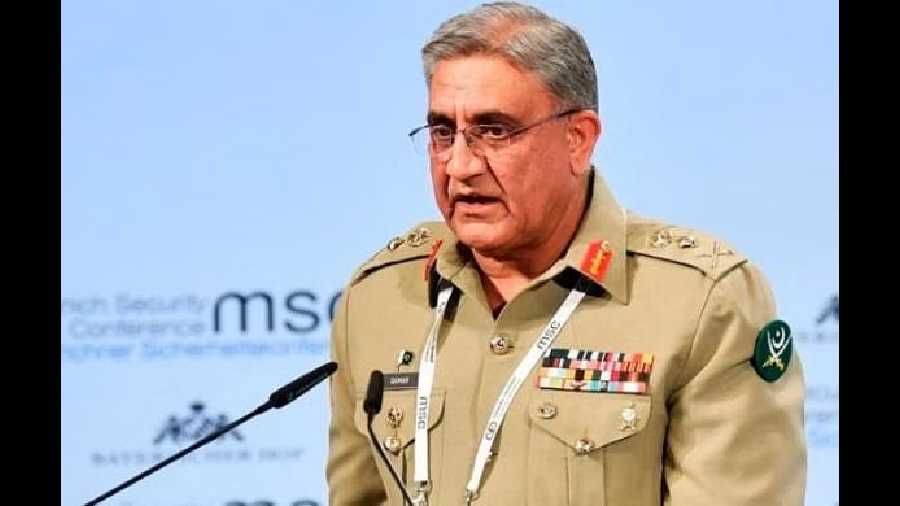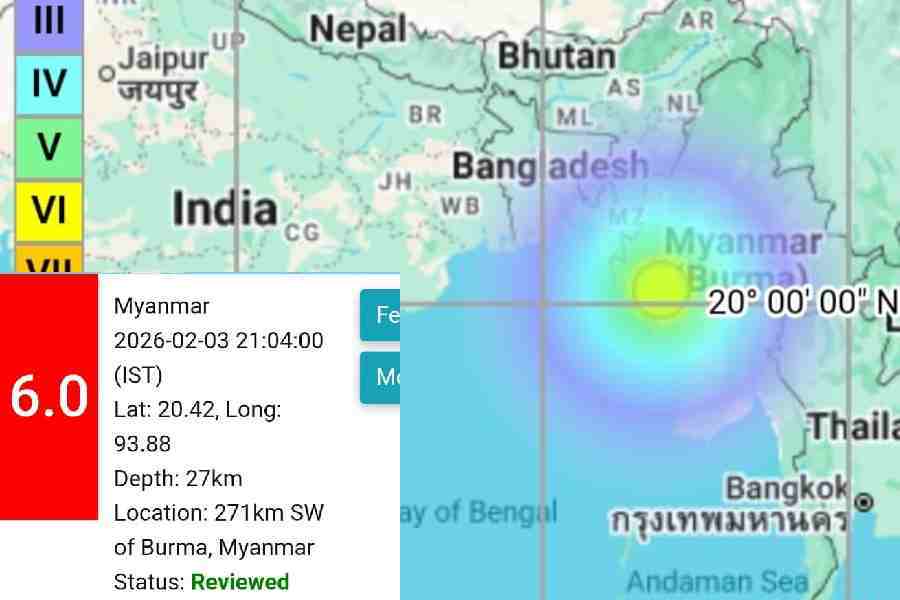Claims that then Pakistan army chief Qamar Bajwa had been on board about the August 2019 constitutional changes in Jammu and Kashmir provide the missing piece in the puzzle of why the streets were so subdued following the dilution of Article 370, many here believe.
In a conversation between two Pakistani journalists that has gone viral on social media, it has been alleged that General Bajwa, who led Pakistan’s army from November 2016 to November 2022, knew in advance about the August 2019 changes.
It is also alleged that Bajwa was preparing to host Prime Minister Narendra Modi in April 2021, two months after India and Pakistan had announced a border ceasefire that had surprised many considering the lingering bitterness over the Kashmir developments, Pulwama massacre and Balakot airstrikes.
One of the two Pakistani journalists accuses Bajwa of a “sell-out” on Kashmir, alleges the general had multiple times claimed the Pakistan army was incapable of fighting India, and suggests that the then government of Imran Khan scuttled Modi’s visit.
The Valley, known for exploding at the drop of the hat, had witnessed only a handful of protests after the revocation of Jammu and Kashmir’s special status on August 5, 2019. The militants too went into a shell.
Conventional wisdom has it that the Centre’s jackboot tactics — it jailed thousands, snapped Internet and phone services for months, and severely restricted movements — had intimated and silenced the Valley.
The then governor, Satya Pal Malik, said the Centre had feared street violence and at least 1,000 civilian deaths but, eventually, the Kashmiris were too “fatigued” to fight.
The clampdown and the purported fatigue are both plausible explanations: the prolonged crackdown since Hizb commander Burhan Wani’s death in 2016 had left people exhausted.
Yet, to many here, these two factors had always seemed inadequate to explain the extent of the calm after so momentous an event as the dilution of Article 370.
The Pakistan army and other players the Pakistani journalists have named — including former Prime Ministers and other ministers — have so far not issued denials.
A certain pattern to the Centre’s 2019 crackdown too appears revealing in hindsight: it was the pro-India politicians who bore the brunt while the separatists, always in close touch with the Pakistani establishment, had it easier.
Three former chief ministers — Farooq Abdullah, Mehbooba Mufti and Omar Abdullah — were among the hundreds jailed. But senior separatists like Syed Ali Shah Geelani, Mirwaiz Umar Farooq and Mohammad Ashraf Sehrai were under house arrest. None issued calls for an agitation.
The Centre had rushed in thousands of additional troops, but many werewithdrawn after only a few days.
A journalist who works for a Delhi-based TV channel said that agitation hotbed south Kashmir had been unusually calm when he visited Pulwama a week after the August 5, 2019, developments. “It is unlikely that they (the people) knew what was going on between the two countries. But maybe there were some directions from across (the border). Militant activities resumed weeks (about two months) later when they started targeting non-local people,” the journalist said.
This correspondent visited parts of south Kashmir on August 18, 2019, and did not find a single soldier manning the streets in the Shaar, Khrew or Mandankpal villages. The villagers, however, said they had faced a brutal clampdown in the initial few days, with dozens of arrests.
In the months ahead of the August 2019 developments, the topmost Hizb commander, Riyaz Naikoo, had complained that Pakistan was neither sending arms nor highlighting Kashmir diplomatically.
In his conversation with fellow Pakistani journalist Nasim Zehra on a TV show, Hamid Mir says that PoK Prime Minister Raja Farooq Haider had rushed to London after the August 5, 2019, developments to narrate to Nawaz Sharif (his party chief who lives in London) the details of a purported conversation he had had with Bajwa two days before Article 370 was diluted.
“He (Raja) told him (Sharif) how August 5, 2019, unfolded and how Bajwa Sahab knew in advance…. He (Raja) had told him (Bajwa) that if this was so, why not wage a war? He (Bajwa) replied that they (Pakistan army) do not have the capacity,” Mir says.
“I told Raja Sahab to come to my show and talk about it. He said that what I was saying was right but he can’t do that because it can involve the Official Secrets Act.”
In the conversation, Mir says: “When (then) foreign minister Shah Mahmood Qureshi learnt that Modi was coming, he rushed to (then Prime Minister) Imran Khan for confirmation and asked him whether he knew about it.”
Mir adds: “He (Imran) told him that Bajwa and (Lt) General Faiz (the then ISI chief) had come to him and that they were holding some kind of talks with India, with (national security adviser) Ajit Doval, but that he (Imran) did not know that he (Modi) was coming. Imran told Faiz Sahab to take the foreign office on board.”
General Bajwa, Mir says, brought his top officers along to “lecture” the foreign office, telling the mandarins the Pakistan army was in no position to fight India.
Mir adds that Bajwa had earlier delivered the same “lecture” to about 20-25 Pakistani journalists during a confidential meeting.
“It was the same lecture he gave to you and me (Mir and Zehra). Do you remember what the lecture was? It was that their (Pakistan army’s) tanks can’t move, they have no diesel for movement…. There were 20 to 25 journalists and he was saying they lack the capacity to fight,” Mir says.
Zehra confirms the details and suggests that an army chief who says such things should be court-martialled.
Mir says that Qureshi, the then foreign minister, had himself confirmed these details to him while telling him that he (Qureshi) could not go public without permission from his chairman (Imran).
“The foreign office confronted him (Bajwa). He (Qureshi) not only took his foreign secretary to the meeting (with Bajwa), but also five to six ex-secretaries. They all told him that it was a trap set by India and that what ‘you (Bajwa) are saying is a deviation from (Pakistan’s) traditional stand on Kashmir and goes against our national interest’.”
Mir says Bajwa turned furious and told the group that Modi would be visiting in April 2021.
“He (Bajwa) had through General Faiz and Ajit Doval fixed the date of Modi’s visit…. He (Bajwa) felt offended with Imran Khan (for putting a spanner in Modi’s planned visit) and thereby denying him (Bajwa) a chance to get the Nobel Peace Prize by solving Kashmir,” claims Mir, a bitter critic of Imran.










